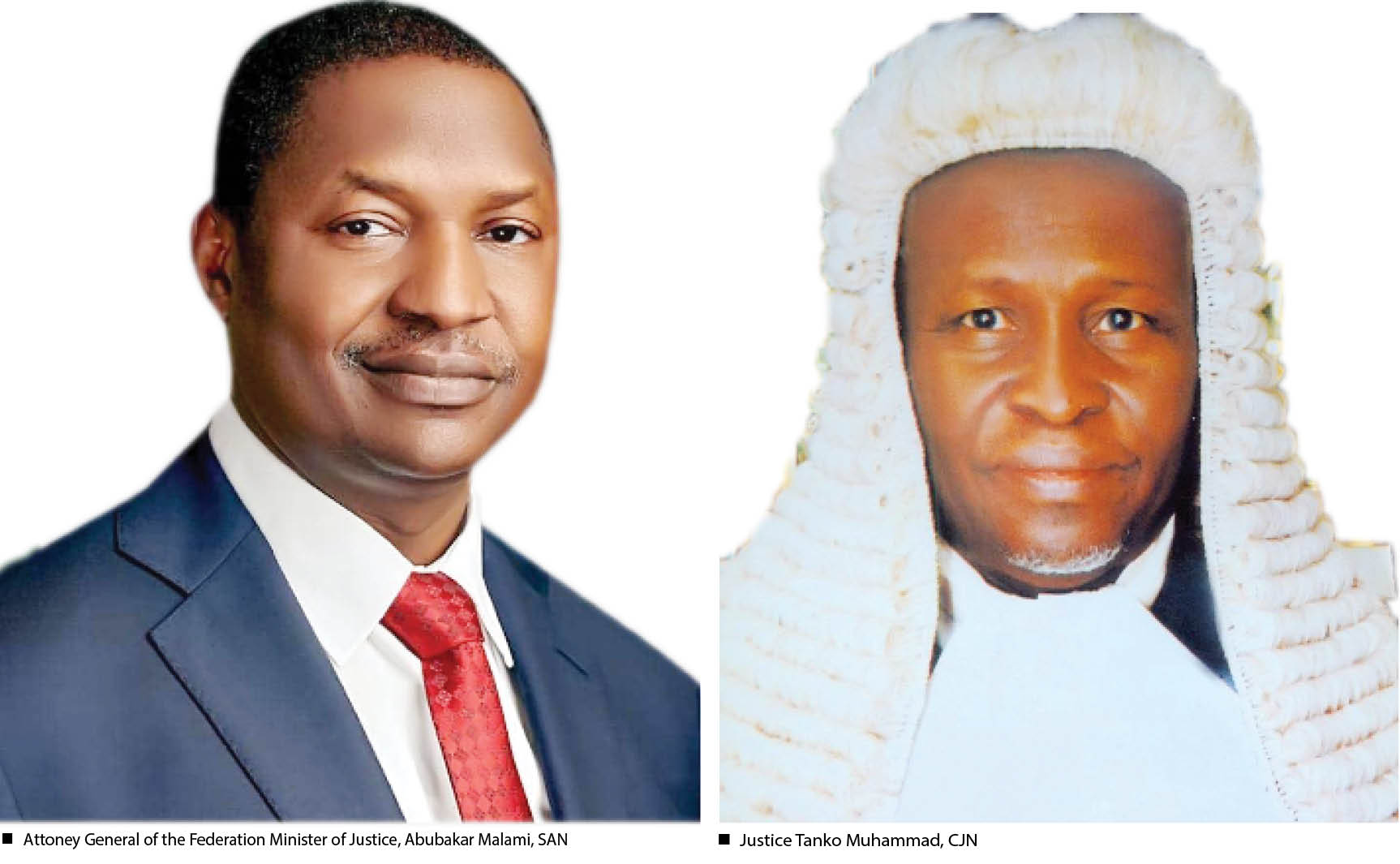COVID-19: When FG’s contracts become unenforceable
Today, the rapidly spreading coronavirus disease that has forced major business disruptions in Nigeria and worldwide has thrown up the pertinent issue of “force majeure” as a provision in a contract that may excuse a party from not performing its contractual obligations. By the rule of absolute contract, a man is strictly bound by his […]

Today, the rapidly spreading coronavirus disease that has forced major business disruptions in Nigeria and worldwide has thrown up the pertinent issue of “force majeure” as a provision in a contract that may excuse a party from not performing its contractual obligations.
By the rule of absolute contract, a man is strictly bound by his contract and in the absence of express limitation of his liability, he must take the consequences of being unable to perform his obligation in changed circumstances.
The reason for this harsh rule is that a contracting party can always provide for unforeseen contingencies in his contract, and if he fails to do so, then he must be taken to have assumed the risks entailed in such situation.
In the government’s reaction to check the spread of the disease in the country, President Muhammadu Buhari announced a lockdown in three states and this has been followed by other states.
According to Barrister Tunde Amoo, the basic rule in Common Law is that a party is not discharged from his contractual obligations merely because, due to some unforeseen event, the contract has become more burdensome, or even impossible to perform.
Contractual obligations are absolute and if a party wishes to protect himself against subsequent difficulties in performing them, he should stipulate expressly for that protection in the contract.
The Court of Appeal in the case of Kemtas Nig Ltd v. Feb. Anich Nig Ltd stated that: “A breach of contract is committed when a party to a contract, without lawful excuse, fails, neglects or refuses to perform an obligation he undertook in the contract or either performs the obligation defectively or incapacitates himself from performing the contract or by wrongfully repudiating the contract.”
Meanwhile, the federal government law that prohibits the movement of persons has rendered any attempted performance of many contracts illegal as some state governors have enacted similar legislation prohibiting such movements, hence parties may be discharged from their obligations.
Thus, the current coronavirus pandemic can be deemed to be a “force majeure”- a superior force that a party has no control over and as such unable to perform its obligations, especially considering that most states have ordered closures of many businesses and facilities.
During the Nigerian civil war, employees were also cut off from their employers for a 12-month period.
As with other countries, the Iraqi government has declared that the ongoing COVID-19 crisis constitutes an event of force majeure for ‘all projects and contracts’ effective from 20 February.
Lagos-based lawyer Uyi Samuel Oni said in view of the dwindling economic fortunes as a result of the outbreak of the coronavirus, people are finding it difficult to honour contracts and are currently at risk of a lawsuit for breach of contract.
Where, according to him, a contract has been frustrated or rendered incapable of performance due to force majeure, the question of breach will not arise, as none of the parties can be held responsible for what happened.
“However, it is only appropriate that necessary steps are taken to mitigate the hardship such unforeseen circumstances might cause. So, companies with contracts affected by the coronavirus pandemic should review the contracts to identify what force majeure and or frustration rights, remedies and requirements may apply if a party’s operations are disrupted by the effects of the coronavirus.”
According to him, parties should identify the notice requirements and deadlines that have triggered as many contracts require the party invoking a force majeure clause to provide prompt written notice to its counterparty, often within a specific time period. Parties must be aware of these requirements as the application of force majeure could be precluded by absent compliance.
“Before deciding to invoke the contract’s force majeure clause, parties should assess and document alternative means of performance or the availability of steps that may be taken to avoid or reduce disruption to operations,” he said.
Uyi said parties should communicate as early in this process as possible, adding that the sooner the parties notified one another of concerns about performance or inability to perform, the greater likelihood of resolution of disputes.
